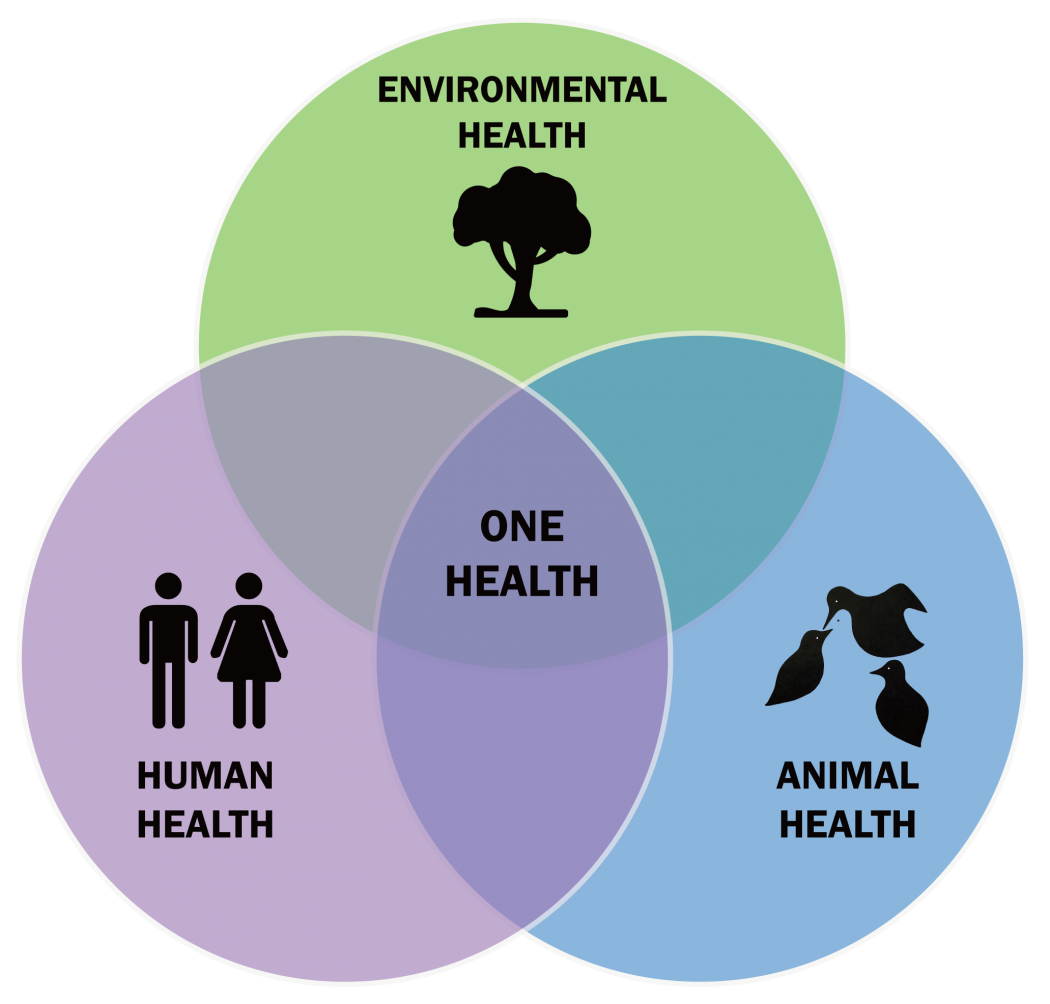Clinical Scenario: Your patient presents with productive cough and dyspnea. He mentions that his neighbor’s dog is experiencing similar symptoms. How does this narrow your differential? Now, add a recent earthquake to the scenario! What’s your diagnosis?
On November 5 2021, students from the University of Arizona’s Colleges of Medicine, College of Veterinary Medicine, and College of Public Health came together to tackle this multispecies disease outbreak. The activity was part of the university’s first annual One Health Interprofessional Event (IPE), which took place virtually this year. One Health is a public health concept recognizing the interconnectedness of human, animal, and environmental health. It encompasses everything from zoonotic disease to the effect of air pollution on respiratory health.
As the two medical students on the event’s planning committee, we had the opportunity to work with students from other fields to create this interdisciplinary exercise. Our goal was to make the scenario challenging but enjoyable, and to encourage students from different disciplines to problem solve together. Our committee quickly landed on Valley Fever as the topic for the event due to its local relevance and incorporation of expertise from all three professions.
Veterinary student Evie Garcia on her experience on the event committee: “It was incredibly rewarding to be able to work with colleagues in different disciplines and watch their reactions as they learned more about VetMed and how interconnected our professions really are.”
After months of planning, event day finally arrived. Students and faculty from each of the schools logged into the virtual event. After a short introduction, participants first entered breakout rooms with only members of their own profession. Each group walked through the medical, veterinary, or public health version of the case. Next, the groups were mixed and participants had to communicate their findings to students in other disciplines. The interdisciplinary groups competed with each other to see which team could figure out the correct diagnosis. After the disease was revealed as Valley Fever, the groups came together again to plan a public health response to the outbreak. The event concluded with a Q&A panel with experts in Valley Fever and One Health. Students submitted questions to members of the panel, which included the Arizona State Public Health Veterinarian, researchers from the Valley Fever Center for Excellence, professors from multiple university programs, and the Director of the University of Washington Center for One Health Research.
Hayes Hoover, MPH student and co-leader of the planning committee, on the importance of the event: “We often talk about the importance of ‘One Health’ – bridging the gap between human, animal, and environmental health. However, there are rarely instances when veterinary, medical, and public health students are in the same ‘room’ presenting case studies, giving each other feedback, and discussing environmental drivers. The One Health IPE provided students with a platform to form otherwise improbable partnerships.”
As medical students, we don’t often get to learn about diseases in other species or in the context of the environment. Nevertheless, it has become increasingly clear that environmental drivers (climate change, wildlife habitat destruction, forest fires, etc.) affect the health of our patients. The current Covid-19 pandemic has shown us just how important interdisciplinary collaboration is to public health. In this way, we created the One Health IPE to address a critical gap in medical education.
Our first annual One Health Interprofessional Event proved to be a success. It was especially valuable to work with colleagues across University programs to create this student-led activity. We look forward to next year’s event, where we plan to include more disciplines and increase the difficulty of the case. We hope to see you all there!
The One Health Interest Group at UACOMP was started in 2019 out of a need to emphasize the interconnectedness of health in the human medicine curriculum. In 2009, the CDC established the first One Health federal agency, which leads One Health activities globally. The agency’s many projects aim for global collaboration among disciplines to better focus limited resources on preventing the most threatening zoonotic diseases. Seeking to promote this essential public health concept, authors Rebia Khan, MS3, and Jovanna Figueroa, MS2, from the University of Arizona College of Medicine, worked with students from the College of Veterinary Medicine, and the College of Public Health to create the University’s first One Health Interprofessional Event.


